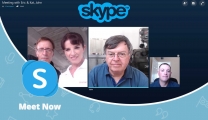So what if the candidate is not as excellent as what they say on the resume? What secrets do employers have to detect those "intentional" mistakes? You will find the answer in today's article of Careerlink.vn.
1.They only talk about themselves
An interview is also known as a Q&A series (question and answer) in which candidates answer questions posed by the employer. talk about yourself.
In a typical interview, at least a few times someone else's name is called out. It could be the former boss, the candidate admires, the goal of success, etc. That is when the employer asks about the applicant's career aspirations, they expect the candidate to give the names of some successful people. that they admire. Or, if you were to ask about the candidate's previous experience and path to personality formation, you'd expect them to mention positively, perhaps an influential colleague, boss or client in the answers.
This is just one of the prime examples. However, if in an interview the candidate doesn't mention anyone else, that's a red flag. This gives an indication that this could be someone who specializes in side jobs, doesn't know the nature of the job, or never gets compliments from a boss or client.
2.Speak well about everything
Unlike the above case, the candidate in this case always talks about good things, compliments and compliments. However, as a recruiter, you need to verify the accuracy of the problem or how much truth is behind the rhetoric.
Of course, everyone understands that an interview is a place for candidates to showcase their abilities, expertise and experience. However, be careful with the overly flattering information of the candidate and make the right choice.
3.Do not discuss their shortcomings
When an employer asks a candidate, “What is your biggest weakness? Don't expect to get an answer that says "I'm such a perfectionist!" Is your answer to “what is your biggest weakness?” At that point, candidates are afraid to admit they're not perfect and did something wrong at their old workplace.
However, that proves the "unreal" things about the candidate compared to the paper. A person who recognizes his weaknesses and takes measures to improve is the right candidate for your company.

4.They are not professional during the interview process
Employers can recognize a bad candidate by their language, appearance, gestures, and communication during the interview process.
Maybe they say in their CV that they are responsible and always deliver on time. However, he was late in his first interview.
Or candidates who talk badly about their jobs, colleagues or previous jobs also show that they do not match the "beautiful words" in the CV.
If you really love these candidates, you need to clarify the points of inconsistency to avoid the case when you miss the hiring but when the work is not suitable, it will waste time and money. You may think of the possibility that the candidate may not be able to perform to his or her full potential due to a stressful situation or circumstances. So to ease your concerns, research sources of information. other news to find out the truth.
5. The perfect person for the job
Employers should be wary of a supposedly perfect candidate for the job. This is shown through the skills and experience in their CVs that match the job description in the recruitment section. However, a 100% match can cause employers to question its accuracy.












Replies to This Discussion